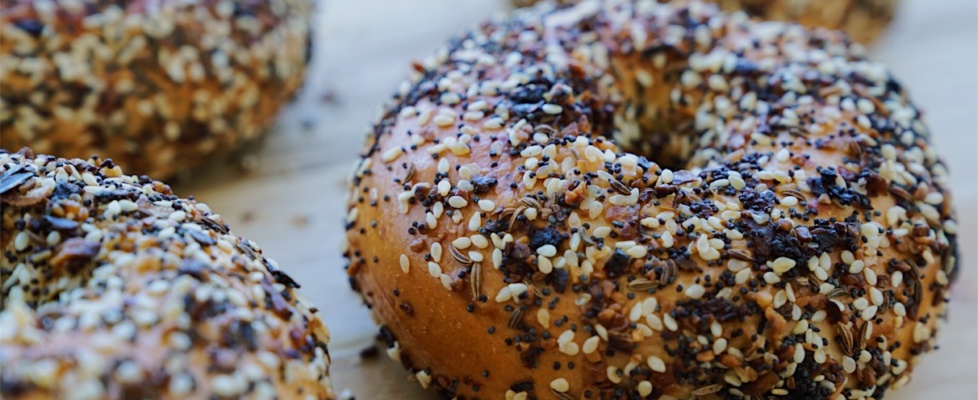Should I Go Gluten-Free?
Gluten… often feared and avoided by the health conscious, this little protein has made quite the headlines! So should you eat gluten, or are you better off going gluten-free? Let’s discuss the pros and cons, and figure out if avoiding gluten is right for you.
What is gluten?
Gluten is a protein made up of glutenin and gliadin. Some grains, wheat being the most commonly known, contain gluten. Gluten helps keep flour moist and pliable, and is often used in baked goods to help provide shape and a chewy texture.
Which foods contain gluten?
Most whole grains are naturally gluten-free, with the exception of wheat, rye, barley and triticale. The following wheat varieties also contain gluten: spelt, kamut, farro, durum, bulgur and semolina. If you’re trying to avoid gluten, pay close attention to the listed ingredients on the food label, gluten can be hidden in products like soy sauce, condiments, seasonings, alcohol and vegetarian meat alternatives. Here are some common foods that contain wheat:
– Baked goods such as cake, cookie and pie
– Most breads including both wheat and white varieties
– Pasta, pizza, bagels, crackers and flour tortillas
– Breakfast foods like doughnuts, waffles, pancakes and crepes
Should you go gluten-free?
There may be some health benefits for going gluten-free, since most “whole foods” like vegetables, fruit, meats, dairy, and some whole grains are naturally gluten-free. However, there is a small percentage of the population that needs to avoid gluten, those with a diagnosis of celiac or an intolerance to gluten (a blood test or an intestinal biopsies can help determine these diagnosis). If you do have celiac, it is imperative to follow a strict gluten-free diet. You should consult with a Registered Dietitian or a qualified healthcare professional for further guidance. If you don’t have an allergy or intolerance to gluten, consuming gluten in moderation can be part of a healthy balanced diet.
Will going gluten-free help me lose weight?
Maybe, since avoiding gluten often requires cutting out processed junk foods and desserts, which can promote weight loss. Keep in mind that just because a food item is “gluten-free” doesn’t necessarily mean it is healthier for you. Gluten-free products may contain added sugar, refined starch flours (like potato or rice) artificial sweeteners, emulsifiers, fillers, and possibly unhealthy saturated or trans fat which can contribute to weight gain. For example, a piece of gluten free cake still contains added sugar, and can be just as calorically rich as a piece of regular cake containing gluten.
For optimal health, stick with minimally processed foods and whole grains, many of which are naturally gluten-free like rice, quinoa, oats, wild rice, millet, buckwheat, corn and oats. If you have a gluten allergy, opt for a gluten-free oat option (oats may be processed in the same facility as wheat, making them susceptible to cross-contamination).
The Bottom Line
Unless you have a medical reason to avoid eating gluten (such as celiac disease), whole grains can be part of a healthy balanced diet. Remember that just because it’s “gluten-free,” doesn’t mean you’re undoubtedly eating a healthy food! Try to stick with whole foods that are minimally processed, closest to their natural form as possible.
Curious about how to get more whole grains into your diet, try swapping out white bread for whole wheat. Check out our latest myth-buster piece on White Bread vs Wheat Bread. Is there a food myth you would be interested in learning about, leave a comment below we want to hear from you!
